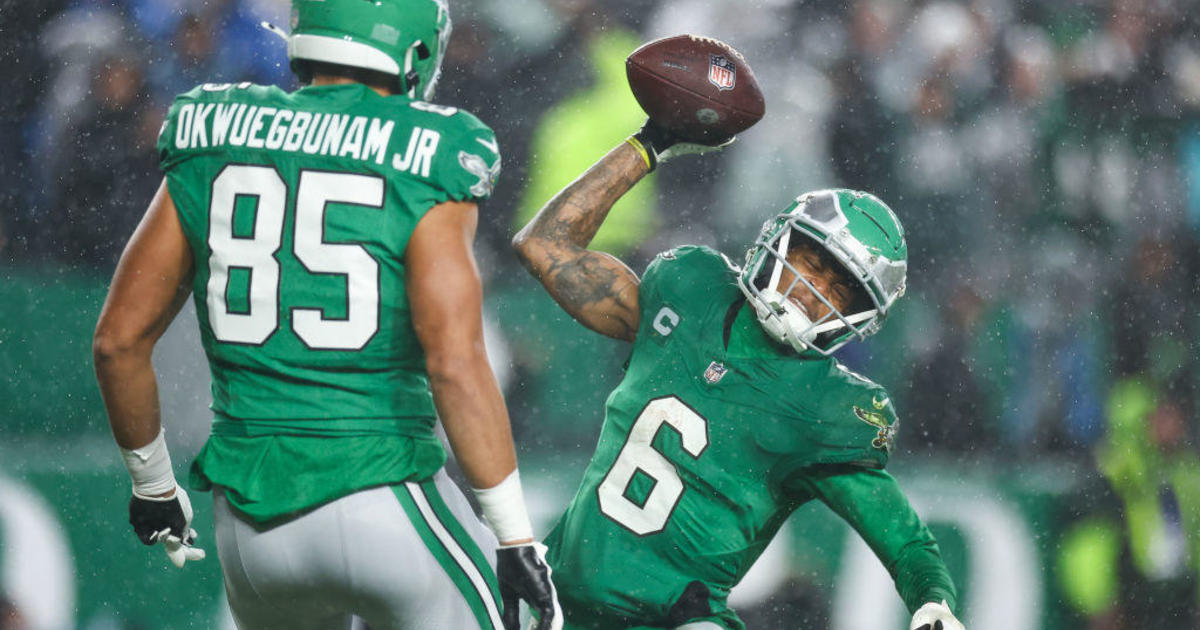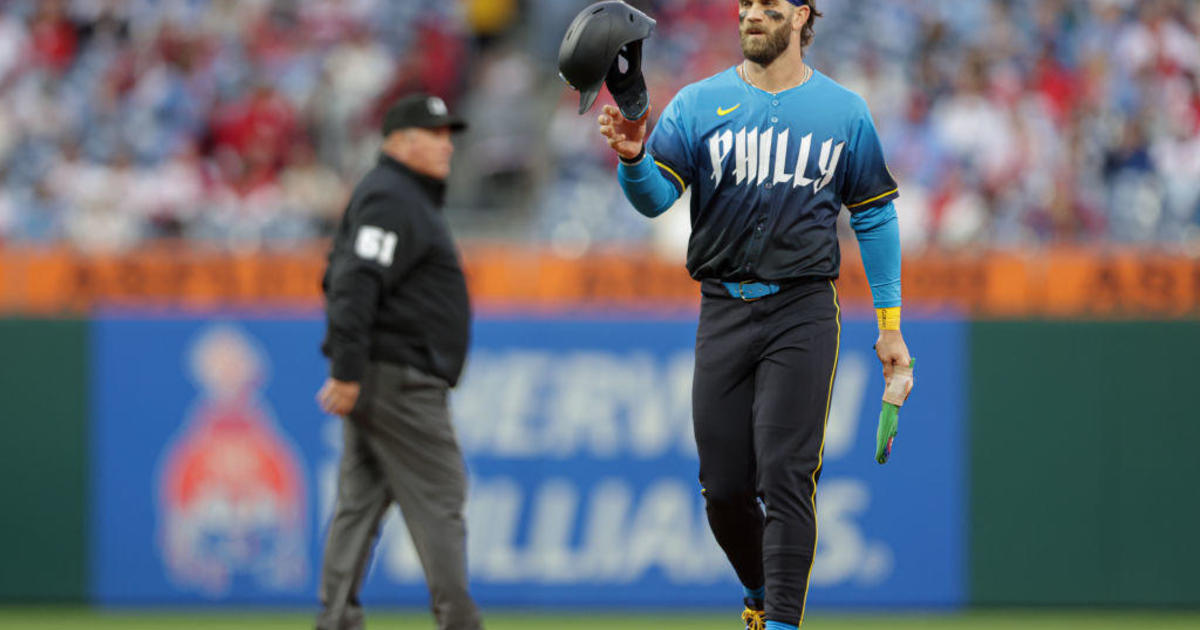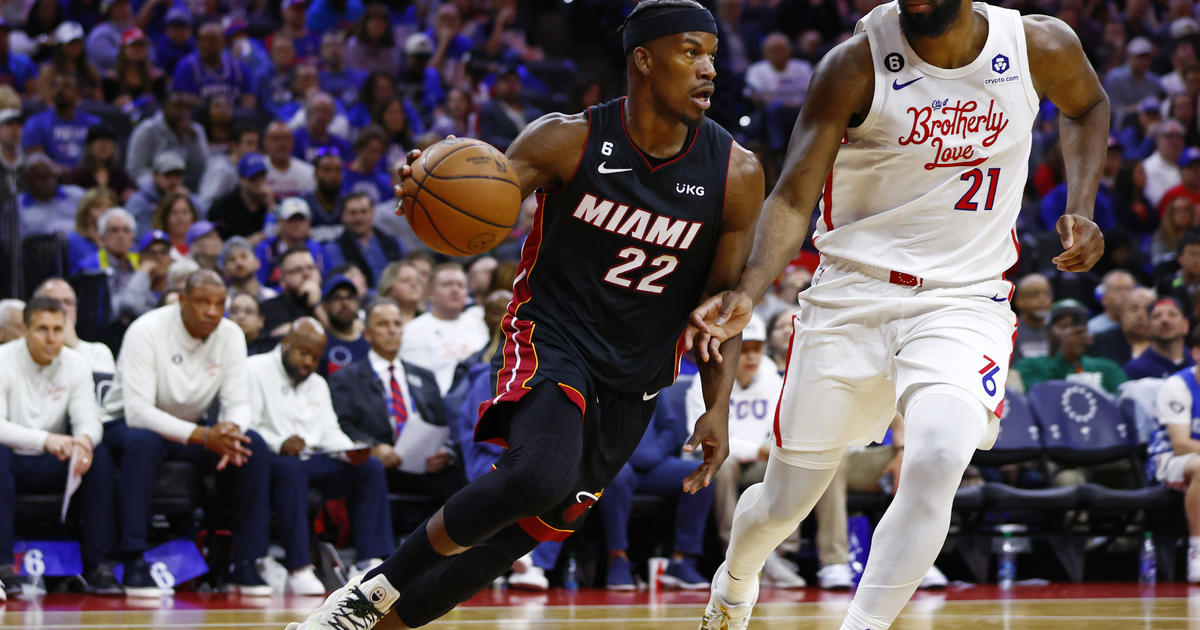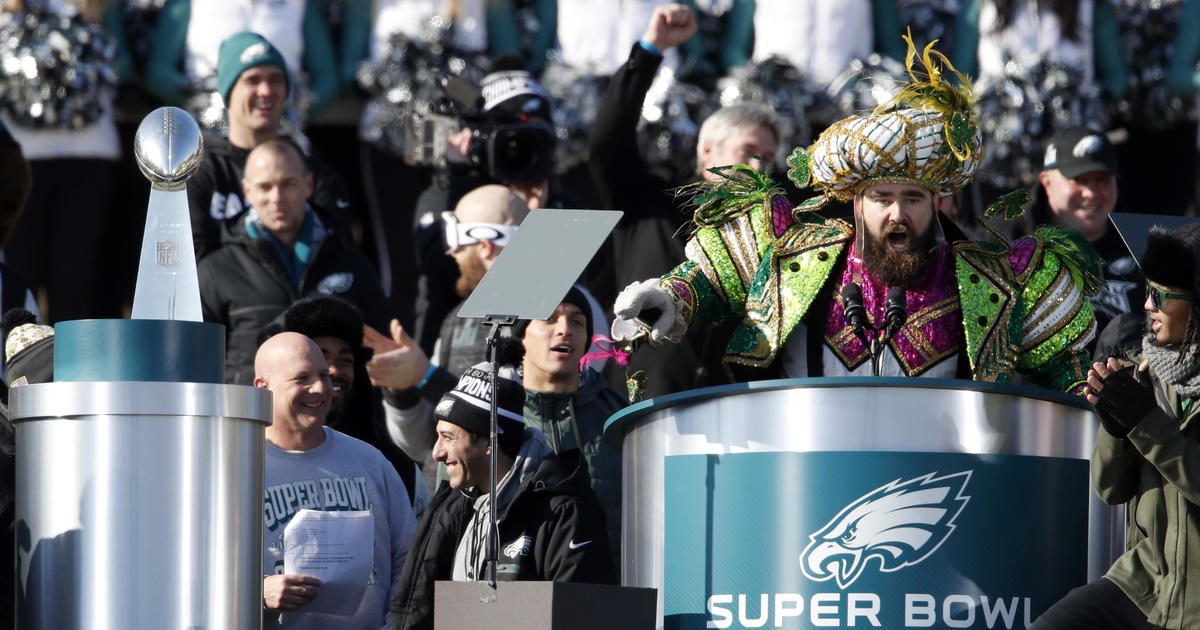Vick Pit Bulls On Slow Road To Recovery
KANAB, Utah (AP) -- At the Pro Bowl this weekend in Hawaii, Michael Vick made the start at quarterback -- an unmistakable benchmark for what has been a rapid, successful and, in some circles, surprising comeback.
A few thousand miles away in the wilderness of Utah, the pit bulls Vick once owned are making a comeback of their own, though theirs has been a much slower, steadier climb.
Take the case of Little Red. Three years ago, she would race to the nearest corner and cower, her face buried against the wall, at the sight of any human or dog. Or Ellen, who would growl at anyone who came near her, especially if they dared glance over at her food dish.
Both dogs had such bad problems, experts said, they'd be better off dead.
These days, though, Little Red wags her tail a mile a minute and is almost inseparable from her new, best buddy -- a cattle dog mix named Google. And Ellen, a tannish-brown bundle of energy, still loves her food but loves her visitors even more -- smothering them with kisses as soon as they walk through the door.
These dogs and 13 others are rehabilitating at the Best Friends Animal Society in Kanab, a world away from where their lives began, chained in basements and forced into dogfighting rings as part of the business bankrolled by Vick, the Eagles quarterback who has been out of prison for more than a year, and just this week received his first paid endorsement deal since his release.
On the one hand, the Vick dogs are all success stories -- on the road to recovery and serving as ambassadors for a breed that has been widely derided as too dangerous.
In another respect, though, their recoveries are slow and sometimes painful, many filled with diseases, injuries and skittishness that manifested themselves under their stewardship of Vick.
"Some people might say, 'Three years, that seems like such a long time,"' said John Garcia, a manager of the dog operation at Best Friends, who has done extensive work with the Vick pit bulls. "But we measure their progress in baby steps, especially when they were on the other side of this for as long as some of these dogs were."
Much as it has been hard to fit the story of Vick's comeback in a tidy little box, the trajectory of these dogs' lives, their recovery and the message they send, is difficult to sum up.
It wasn't surprising, then, that while Vick made his way into the news this season by suggesting he might someday want to be a dog owner again -- prompting a flurry of opinions, with the U.S. Humane Society and even President Obama weighing in -- the folks at Best Friends stayed mostly silent.
They released a two-sentence statement saying that, given what his dogs have been through, the quarterback shouldn't qualify as a dog owner. But Best Friends also has conceded that Vick has put a brighter spotlight on the problem of dogfighting and the rehabilitation of pit bulls than they ever imagined possible.
"I'd have to say that he brought attention to the issue in a rather unfortunate way," said Best Friends co-founder Francis Battista. "It's like people dying in a burning building. It brings attention to the fire codes. It's not something you ever want to happen, but now that it's become public and been addressed, there's a positive."
"But how do you rank the damage and pain he caused?" Battista says.
At Best Friends, a 3,800-acre sanctuary that's home to 417 dogs, 658 cats, 340 rabbits and a few dozen horses, pigs and parrots, they prefer to celebrate success stories.
There are small victories, such as the days when Little Red gets approached by a group of unfamiliar people and stands there, wagging her tail and waiting to be petted. And there are big ones, such as the day when the dogs find permanent homes, the way six of the 22 that originally were brought to Best Friends have thus far.
"When they announced on TV that Michael Vick was eligible to play football again, I lost every single bit of inner peace," said Erika, who adopted one of the Vick dogs, Oliver, and didn't want her last name used because she doesn't want herself or Oliver to be targeted for harassment. "But I thought, no, no, no, don't get angry. Don't let a person like that ruin you. If I can't control what happens to him, I can control what happens to me and I can channel this anger into a big bunch of love."
And so, she met Oliver, the dog they said would never kiss a human, but who now sleeps with his pet parent and showers her with kisses every morning when she wakes up.
"The ironic thing to me is, all along, Vick was the, quote, superstar, but all you ever hear about is how great his victims are doing," Erika said. "Now, all his victims are the actual superstars. I've got one of the real superstars sitting beside me."
Battered and bruised as they've been, it's a rigorous process for these dogs to find permanent homes.
After learning the most basic of functions -- walking up stairs, climbing into a car and other taken-for-granted "basics" not always taught in the dank, cruel world in which they lived under Vick's care -- they were slowly introduced into what would become their "normal" life at the sanctuary.
They live in indoor-outdoor dog runs, with plenty of room for exercise. The dogs that can handle it have been slowly introduced to other dogs and a few, such as Oscar and Squeaker, have become fast friends and live together.
They go on long walks, learn how to handle new environments and encountering different animals, and generally live a good life at a so-called "no-kill" sanctuary where they have a guaranteed home until they're adopted.
Before most of these dogs leave Best Friends for good, they'll have to pass the Canine Good Citizen test, which requires, among other things, that they accept friendly strangers, walk obediently on a leash and react calmly to other dogs. From there, they have to find the right home, then spend a successful six months in a foster home.
And Best Friends isn't simply looking for any pet lover for the Vick dogs.
"We feel like dogs going into these homes are being ambassadors" for the breed, Garcia said. "They're not just adopting a dog, but fighting the good fight."
By spreading the message that pit bulls are only as nice, or vicious, as their owners train them to be, the Vick dogs are helping rewrite the book on both the public perception of the breed -- banned in some cities and discriminated against by many insurance companies -- and long-held beliefs inside the animal-training community about the efficacy of rehabilitating dogs rescued from dogfighting rings.
In 2009, law enforcement completed the biggest bust of dogfighting operations in American history, pulling 427 animals out of rings in Missouri and surrounding states.
Dogs rescued from the "Missouri 500" case, as it became known because some of the dogs subsequently gave birth, were given shelter and cared for by the Humane Society of Missouri.
In the past, it's likely none of the dogs would have even been given a chance. But over the span of months and years, the Humane Society tried to rehabilitate and find new homes for all the animals.
As of now, 247 of them have made it.
"You get them in a shelter and see this dog with huge, open wounds that haven't been treated, and he's still wagging his tail and licking your hand and looking at you with big, brown doggie eyes," said Debbie Hill, the Humane Society's vice president of operations. "It doesn't matter if it's a golden retriever, a Saint Bernard or a pit bull. They all have that look of, 'Something terrible happened to me and I didn't deserve that.' It's still a dog. They still deserve a second chance."
With an annual budget of $43 million that comes exclusively from donations, some critics in the animal-welfare business deride Best Friends as an unrealistic utopia -- a facility that has the time and resources to work with animals in a way hardly anyone else can.
But they make no apologies, and their work with the Vick dogs is important. After the raid on the Vick dogfighting ring, animal behaviorists labeled the pit bulls as hopeless and recommended they be euthanized. Best Friends stepped in, did its own evaluations and offered to take the toughest cases.
Many people considered the toughest of the tough to be Lucas, the pit bull who was Vick's top fighter. These days, the biggest problem you might have is prying him out of your lap when you want to stand up.
Still, the scars on his face are impossible to miss. He also has a tick-borne blood disease called Bebesia, common among fighters who suffer many an open wound. Despite his excellent behavior, Lucas is one of two Vick dogs who cannot be adopted -- he was determined to have had too rough a history to live outside the sanctuary.
As is illustrated by spending time with the one-time champion and current sweetheart, the cruelest twist in the Vick story is that the QB and his cohorts took advantage of the pit bull's instinctive desire to please humans by turning them into fighters who were rewarded by their masters for success in the ring.
Eventually, Vick and company got caught.
In April 2007, about six dozen dogs were seized from Vick's Bad Newz Kennels operation and Vick was subsequently sentenced to 23 months in federal prison.
He was reinstated to the NFL for the 2009 season and has been doing public-service work, most notably in conjunction with the Humane Society of the United States, which calls his story "the strongest possible example of why dogfighting is a dead end."
Not everyone sees it that way, however.
His recent suggestion that getting another dog "would be a big step for me in the rehabilitation process," and the debate that ensued, left some wondering if he truly feels remorse for what he did.
"If you got the sense that every day, he woke up and lived with that and wrestled with that, I think there would be a different response from the animal-loving public," Battista said. "That's not what he has communicated. It's not to say he needs to do it. But if there's any confusion of why a big chunk of the public doesn't feel that he's genuine, that's why. There isn't a sense of him connecting with his own behavior and own conscience at a level that most people can understand."
So, while football fans and animal lovers continue to judge Vick on very different scales, the dogs in Utah keep taking two steps forward and one step back.
Another of Vick's prize pups, Georgia, recently had knee surgery, and while she's still a camera-loving attention grabber, some of her progress was slowed in the aftermath of the operation.
Willie, one of the toughest cases among the Vick dogs, is getting better at interacting with new people but still has medical issues stemming from his own bout with Bebesia. And Ellen -- sweet as she is, still loves eating. Absolutely everything. Her toys. Her bed. The plastic lining of the doggie door.
All these problems are correctable, Garcia insists. And time is on all these dogs' side.
"Some say if a dog is bred to do something, you can't undo that," Garcia said. "But to me, that's like saying if everyone in your family has always fought in a war, you're a warrior and you're destined to do this. Not true. Everyone's an individual. You can choose your own path in life. Same with dogs. The only difference is, they can't choose it. We choose it for them."
(Copyright 2011 by The Associated Press. All Rights Reserved.)



